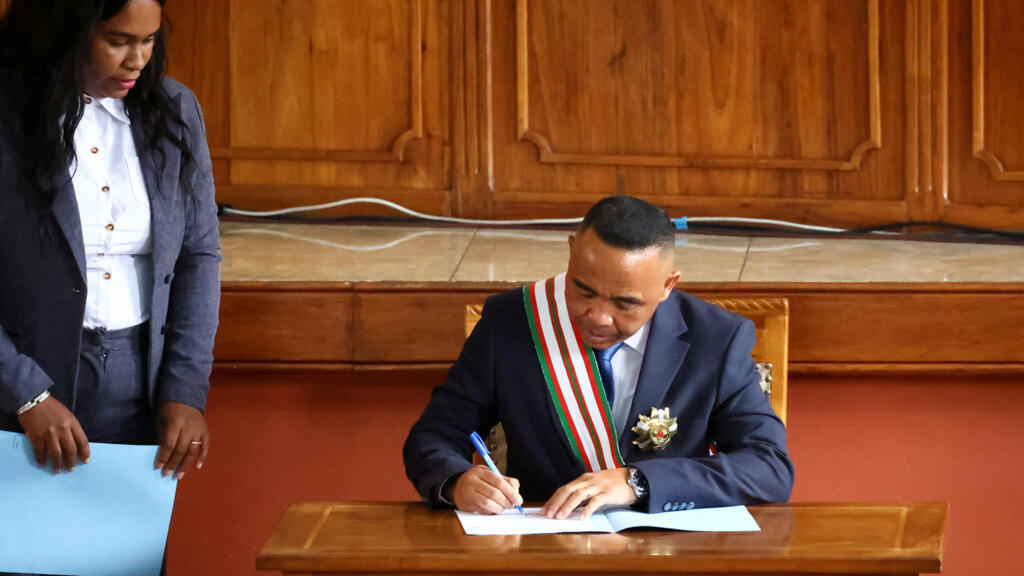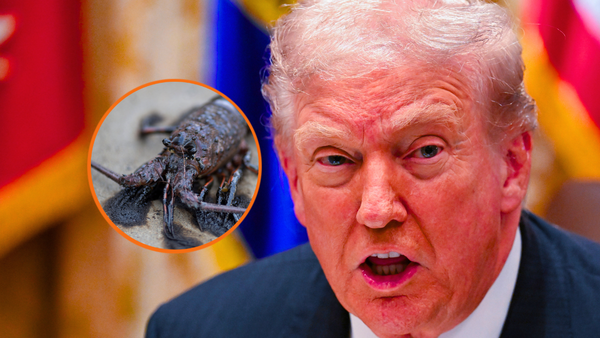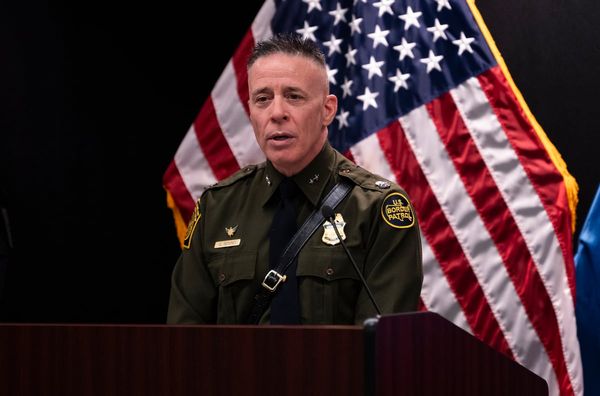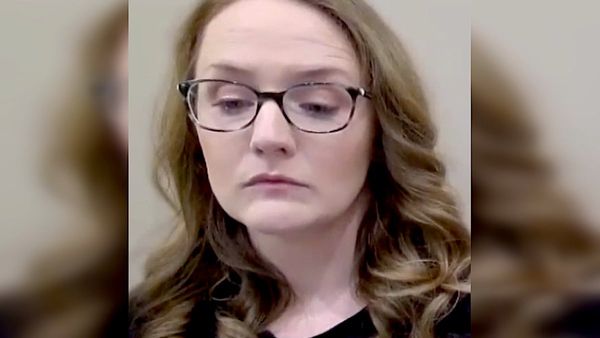
Colonel Michael Randrianirina was sworn in as president of Madagascar on Friday, three days after the army seized power following mass protests that forced former leader Andry Rajoelina to flee the country.
Rajoelina, who was impeached by lawmakers after leaving Madagascar last weekend, has condemned the coup and refused to resign. The African Union and United Nations secretary-general Antonio Guterres have both denounced the takeover.
The new president took his oath at the High Constitutional Court in Antananarivo, pledging to “fully, completely and justly fulfil" his responsibilities as leader.
“I swear that I will exercise the power entrusted to me and dedicate all my strength to defending and strengthening national unity and human rights,” he said.
Randrianirina, who had announced the army’s takeover earlier this week, said the goal was to lead what he called a “national refoundation” after weeks of unrest.
He said a committee led by the army would govern alongside a transitional government for up to two years before organising new elections.
How Gen Z is taking the fight for their rights from TikTok to the streets
Gen Z uprising
The protests that triggered the crisis began on 25 September and were led mainly by Generation Z demonstrators frustrated with poverty, corruption and failing infrastructure.
“Sixty-five years after independence, Madagascar is still one of the poorest countries in the world,” Randrianirina said. “This chaotic situation awakened the conscience of a courageous youth that dreams of a safer, fairer future.”
He described protesters as victims “of injustice, pillage of its resources and embezzlement of public goods”, who took to the streets “to demand national refoundation and the resolution of recurring socio-economic problems, particularly the incessant water and electricity cuts”.
The 48-year-old former commander in the elite CAPSAT army unit – which played a role in the 2009 coup which first brought Rajoelina to power – had broken ranks with Rajoelina last week, urging soldiers not to fire on demonstrators.
“We refuse to be paid to shoot our friends, our brothers and sisters”, he said.
Impeached president confirms he fled Madagascar at the weekend
Promise of change
In his inaugural address, Randrianirina vowed to work “with all living forces of the nation” and to mark “a break with the past”.
He denounced what he called an “authoritarian regime” that had plunged the country “into darkness for years” and “played the card of violence, brutality and violation of human rights”.
“We commit ourselves to undertake all actions and measures necessary against the enemies of the republic, to repair the wrongs suffered by victims during the popular movement and to guarantee the free exercise of fundamental rights and freedoms, including freedom of expression," he said.
He also invited international partners to “accompany Madagascar in the process of piloting and implementing national refoundation”.
RFI correspondent Liza Fabbian reported that it was the first time a swearing-in had taken place at the High Constitutional Court rather than in a stadium.
Randrianirina arrived at the ceremony in civilian clothes but standing on an armoured vehicle, surrounded by masked and armed soldiers.
Madagascar's president dissolves lower house, ignores calls to resign
International concerns
Among the stream of vehicles that passed through the entrance, several cars with diplomatic licence plates were seen, decorated with British or Chinese flags.
The French, Swiss and German ambassadors and the representative of the European Union were also spotted. Political figures including former president Marc Ravalomanana and Ruphin Zafisambo, who was appointed prime minister on 6 October by Andry Rajoelina, were also in attendance.
Consultations have been held in recent days with leaders of the youth movement that helped topple Rajoelina. But some protesters remain cautious about the army’s role and fear their demands could be ignored.
A small group briefly gathered outside the court on Friday, calling on the new authorities to keep listening to the people’s voices.
Madagascar’s population of around 30 million has an average age of under 20. Three-quarters of its people live in poverty, and the World Bank says GDP per capita has fallen 45 percent since independence in 1960.







